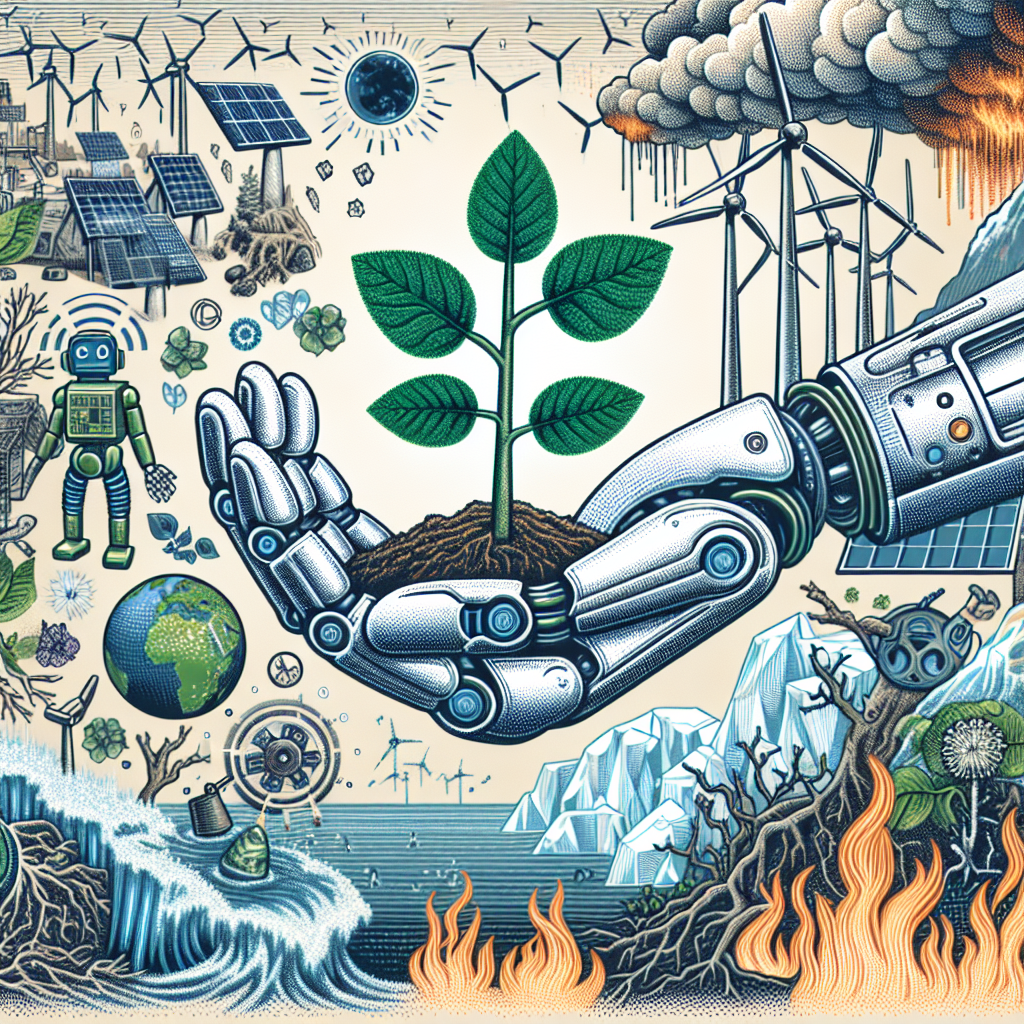AI Solutions: Addressing Climate Change Challenges
Climate change is one of the most pressing issues of our time, with the potential to have devastating effects on our planet and future generations if not addressed urgently. The use of artificial intelligence (AI) solutions has emerged as a powerful tool in the fight against climate change, offering innovative ways to address the challenges we face.
AI technologies have the potential to revolutionize how we approach climate change mitigation and adaptation efforts. From predicting extreme weather events to optimizing energy consumption, AI can help us make data-driven decisions that lead to more sustainable practices and reduce our impact on the environment.
One of the key ways AI is being used to address climate change is through improving the accuracy of climate modeling and prediction. With the vast amount of data available on weather patterns, temperature changes, and greenhouse gas emissions, AI algorithms can analyze this information to create more precise forecasts of future climate trends. This can help policymakers and stakeholders better understand the potential impacts of climate change and develop strategies to mitigate its effects.
AI can also play a crucial role in optimizing energy consumption and reducing carbon emissions. Smart grids powered by AI algorithms can manage energy distribution more efficiently, reducing waste and increasing the use of renewable energy sources. AI-powered systems can also help businesses and individuals track their energy usage and identify opportunities for improvement, leading to lower energy bills and a smaller carbon footprint.
In addition to energy management, AI can also be used to enhance natural resource conservation efforts. For example, AI-powered drones can monitor deforestation, illegal logging, and wildlife populations, providing valuable data to conservationists and policymakers. By analyzing this data, AI algorithms can identify patterns and trends that can inform conservation strategies and help protect endangered species and ecosystems.
Furthermore, AI can help improve agricultural practices and food production, which are major contributors to greenhouse gas emissions. By analyzing soil quality, weather patterns, and crop yields, AI can help farmers optimize their cultivation practices and reduce the use of harmful chemicals. This not only leads to more sustainable farming methods but also increases food security and resilience to climate change impacts.
AI can also be used to address the challenges of urbanization and transportation, which are major sources of greenhouse gas emissions. AI-powered traffic management systems can reduce congestion and emissions by optimizing traffic flow and suggesting alternative routes. Autonomous vehicles powered by AI algorithms can also reduce fuel consumption and emissions, leading to cleaner and more efficient transportation systems.
In conclusion, AI solutions have the potential to revolutionize how we address climate change challenges. By leveraging the power of AI technologies, we can make more informed decisions, optimize resource usage, and reduce our impact on the environment. As we continue to develop and implement AI solutions, we can work towards a more sustainable future for our planet and future generations.
FAQs:
Q: How can AI help address climate change?
A: AI can help address climate change by improving climate modeling and prediction, optimizing energy consumption, enhancing natural resource conservation efforts, improving agricultural practices, and optimizing transportation systems.
Q: What are some examples of AI solutions for climate change?
A: Examples of AI solutions for climate change include smart grids for energy management, AI-powered drones for monitoring deforestation, AI algorithms for optimizing agricultural practices, and autonomous vehicles for reducing emissions in transportation.
Q: What are the benefits of using AI for climate change mitigation?
A: Using AI for climate change mitigation can lead to more accurate predictions of climate trends, more efficient energy usage, better conservation efforts, improved agricultural practices, and cleaner transportation systems, ultimately reducing our impact on the environment.
Q: How can individuals contribute to addressing climate change with AI?
A: Individuals can contribute to addressing climate change with AI by adopting energy-efficient technologies, supporting sustainable agriculture practices, advocating for conservation efforts, and using public transportation or carpooling to reduce emissions.
Q: What are the challenges of using AI for climate change mitigation?
A: Some challenges of using AI for climate change mitigation include data privacy concerns, bias in algorithms, high implementation costs, and the need for regulatory frameworks to ensure ethical and responsible use of AI technologies.

